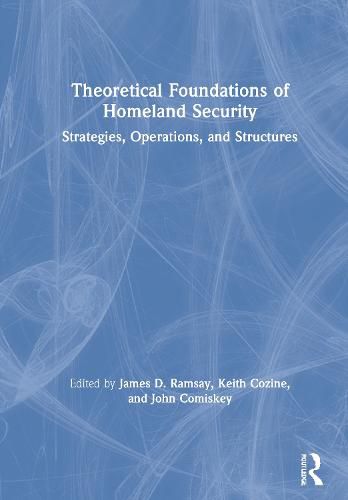Readings Newsletter
Become a Readings Member to make your shopping experience even easier.
Sign in or sign up for free!
You’re not far away from qualifying for FREE standard shipping within Australia
You’ve qualified for FREE standard shipping within Australia
The cart is loading…






This new textbook outlines the main theories and concepts from a variety of disciplines that support homeland security operations, structures and strategies.
Following the terrorist attacks of September 11th, homeland security (HLS) grew in importance within the U.S. government (and around the world) and matured from a concept discussed among a relatively small cadre of policymakers and strategic thinkers to a broadly discussed issue in Congress and society with a growing academic presence. Yet the ability to discern a theory of homeland security that would support overall security strategy has been more elusive to both scholars and policymakers. This textbook aims to elucidate a grand theory of homeland security by leveraging the theoretical underpinnings of the disciplines that comprise the strategies, operations and structures of the HLS enterprise. In this way, each chapter contributes to a grand theory of homeland security as it explores a different discipline that influences or supports a domain of the homeland security enterprise. These chapters cover intelligence systems, terrorism origins and ideologies, emergency management, environmental and human security, cybersecurity policy, crime and security, global governance, risk management, public health, law and policy, technology, interagency collaboration and the sociology of security.
This book will be essential reading for students of Homeland Security and Emergency Response, and recommended reading for students of terrorism, intelligence, cybersecurity, risk management and national security.
$9.00 standard shipping within Australia
FREE standard shipping within Australia for orders over $100.00
Express & International shipping calculated at checkout
This new textbook outlines the main theories and concepts from a variety of disciplines that support homeland security operations, structures and strategies.
Following the terrorist attacks of September 11th, homeland security (HLS) grew in importance within the U.S. government (and around the world) and matured from a concept discussed among a relatively small cadre of policymakers and strategic thinkers to a broadly discussed issue in Congress and society with a growing academic presence. Yet the ability to discern a theory of homeland security that would support overall security strategy has been more elusive to both scholars and policymakers. This textbook aims to elucidate a grand theory of homeland security by leveraging the theoretical underpinnings of the disciplines that comprise the strategies, operations and structures of the HLS enterprise. In this way, each chapter contributes to a grand theory of homeland security as it explores a different discipline that influences or supports a domain of the homeland security enterprise. These chapters cover intelligence systems, terrorism origins and ideologies, emergency management, environmental and human security, cybersecurity policy, crime and security, global governance, risk management, public health, law and policy, technology, interagency collaboration and the sociology of security.
This book will be essential reading for students of Homeland Security and Emergency Response, and recommended reading for students of terrorism, intelligence, cybersecurity, risk management and national security.